THE INTERVIEW
Abahlali baseMjondolo top leadership in hiding after repeated death threats — general secretary
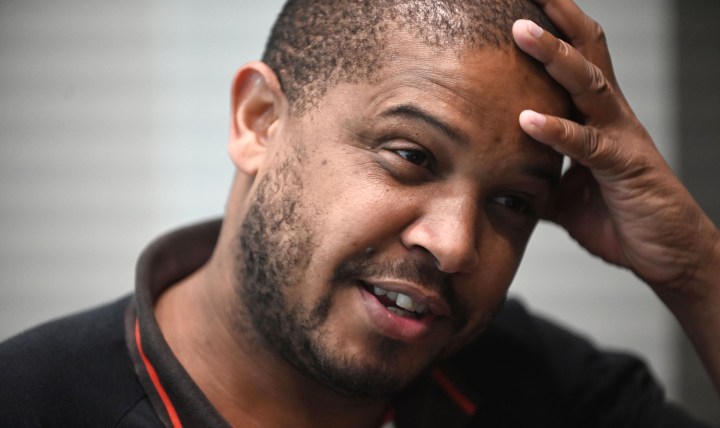
‘It is only when people are organised from a grassroots level that the political framework of the country will change. South Africa needs selfless leaders in order to change the status quo of corruption,’ the General Secretary of Abahlali baseMjondolo Thapelo Mohapi tells Daily Maverick.
Thapelo Mohapi used to frequent a local jazz club and the Mamelodi Sundowns fan also loved watching soccer.
“I don’t get to do those things anymore… I don’t go out with friends because I have to worry about my safety. I’m no longer the person I used to be,” the 41-year-old says.
Mohapi is general secretary of the shack dwellers’ movement Abahlali baseMjondolo. Born in the Eastern Cape town of Matatiele, he says he came from an extremely poor family.
In an interview with Daily Maverick, Mohapi says his family used to sell brooms to earn an income, and that he worked as a paperboy as a child to contribute to the household.
In 1988, his family relocated to Inanda, KwaZulu-Natal, at the height of violent clashes between the Inkatha Freedom Party and the United Democratic Front. Soon, they were forced to return to Matatiele.
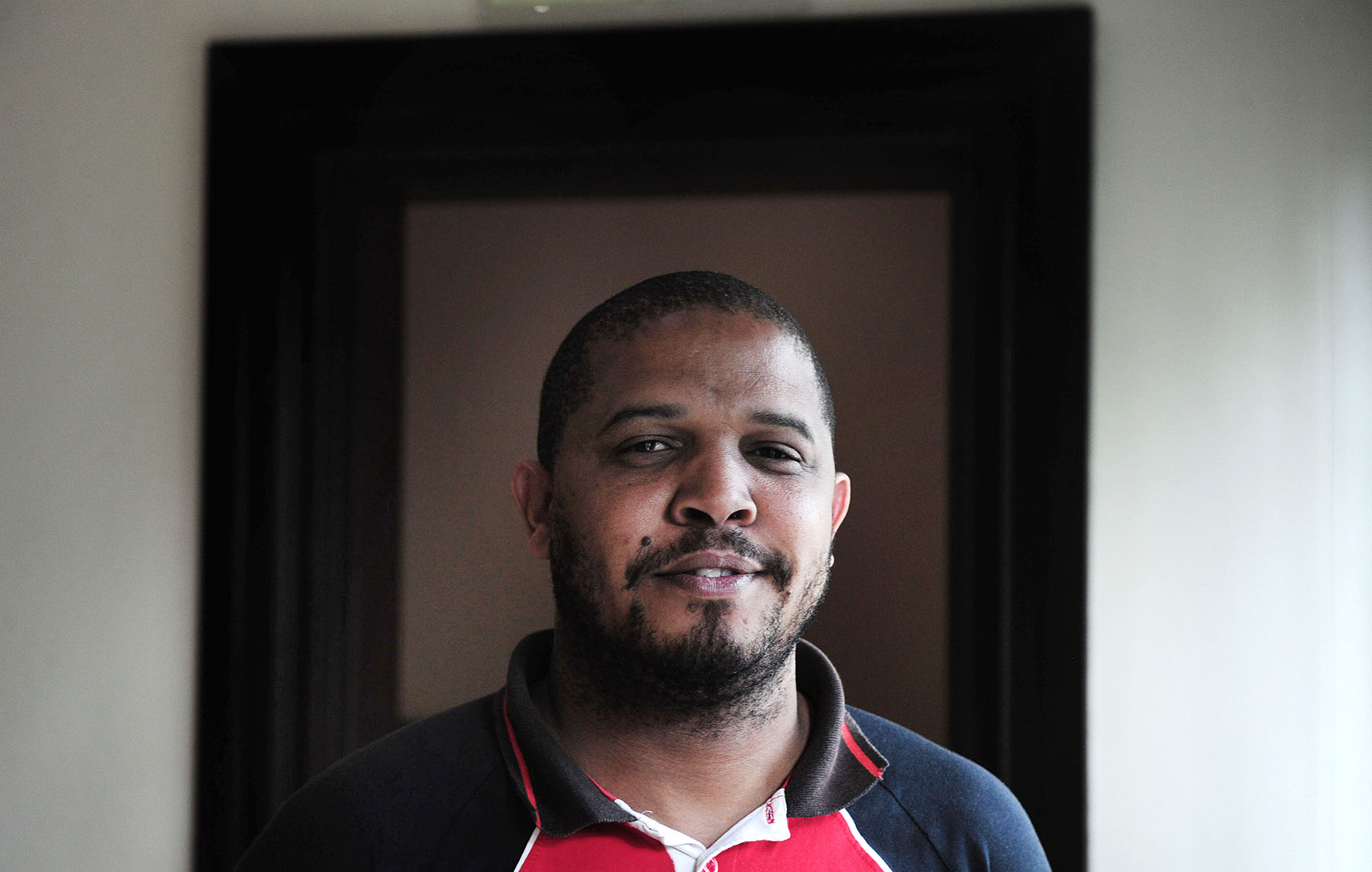
Abahlali baseMjondolo General Secretary Thapelo Mohapi. (Photo: Leon Sadiki)
Describing his primary school life, he said he attended a mud school with a thatched roof and no furniture.
“We had to bring planks from home to sit on and we learnt how to count using beer bottle tops.”
Mohapi says it was in 1994, at the dawn of democracy, that his family moved back to KwaZulu-Natal and settled in the informal settlement of Briardene, north of Durban. He finished his primary schooling at Briardene Primary.
“We could not afford school fees, but because I was a good student, the principal allowed me to complete my schooling without having to pay the R60 a year school fees.”

Panellists during a Land Redistribution in Our Lifetime discussion, (from left) Seri researcher Thato Masiangoako, ABM chairperson in Thembisa Melitta Ngcobo, ABM General Secretary Thapelo Mohapi and academic Richard Pithouse. (Photo: Nomfundo Xolo)
He said his political consciousness was awakened in high school when he became involved in the Learners Representative Council where he dealt with issues surrounding racial tensions.
Mohapi said he focused on building social cohesion as well as gaining an understanding of people’s cultures and how to work together in the school.
After matriculating, Mohapi applied to Unisa to study law. However, because of the dire situation at home, he also had to work. He found juggling the two difficult, so had to abandon his studies in order to work for his family.
Read more in Daily Maverick: Abahlali baseMjondolo killings – 130 civil society organisations demand measures to stop the terror
“I’ve lived in a shack for most of my life, from my parents’ shack to my current shack, so I understand how people in shacks live and are treated,” Mohapi tells Daily Maverick.
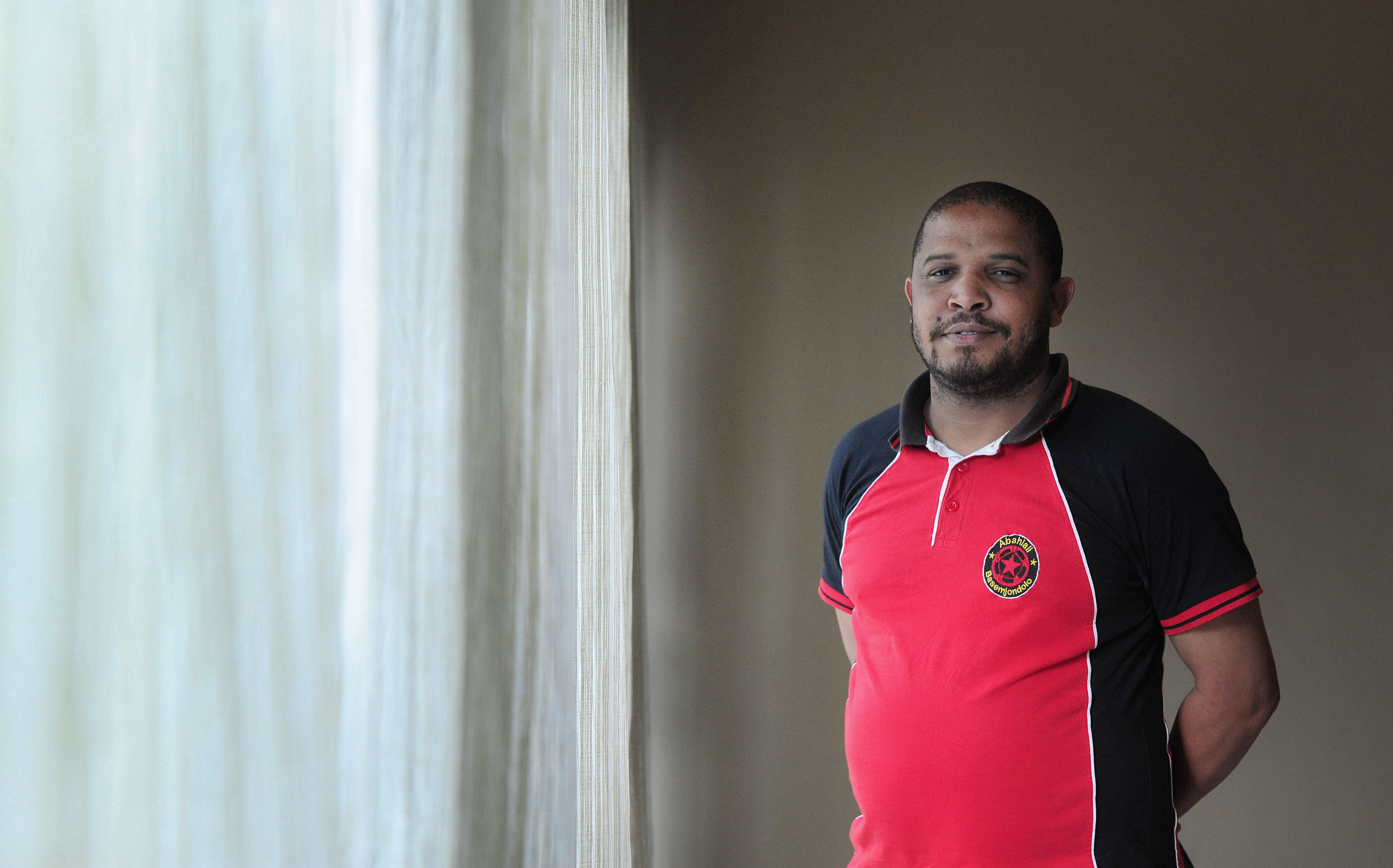
Abahlali baseMjondolo general secretary Thapelo Mohapi at the Sandton Southern Sun, Johannesburg. (Photo: Leon Sadiki)
He says the land on which the Briardene informal settlement was built was bought by a police officer who then proceeded to “brutally” evict people, demolishing their homes in 2009.
“At the time we did not understand our rights, and when you would see a police officer coming with that force, you would back off and take a back seat. He then forced us to pay rent for our shacks.
“When we faced that eviction, we organised a protest of about 300 households. He opened fire into the protest and he thought that because he was a high-ranking officer he could get away with it.”
Mohapi says it was at this time that his community realised they needed help and subsequently approached Abahlali baseMjondolo, who advised them of their rights and referred them to lawyers.
When Mohapi met Abahlali president S’bu Zikode, he explained to Mohapi that he and his community needed to first understand why they were being evicted before they approached the courts.
“He wanted us to understand that that piece of land was not meant for poor people, according to the system… the system never allowed black people to live in Durban North. It was meant for rich people in a white neighbourhood — how dare poor people occupy land in that area?”
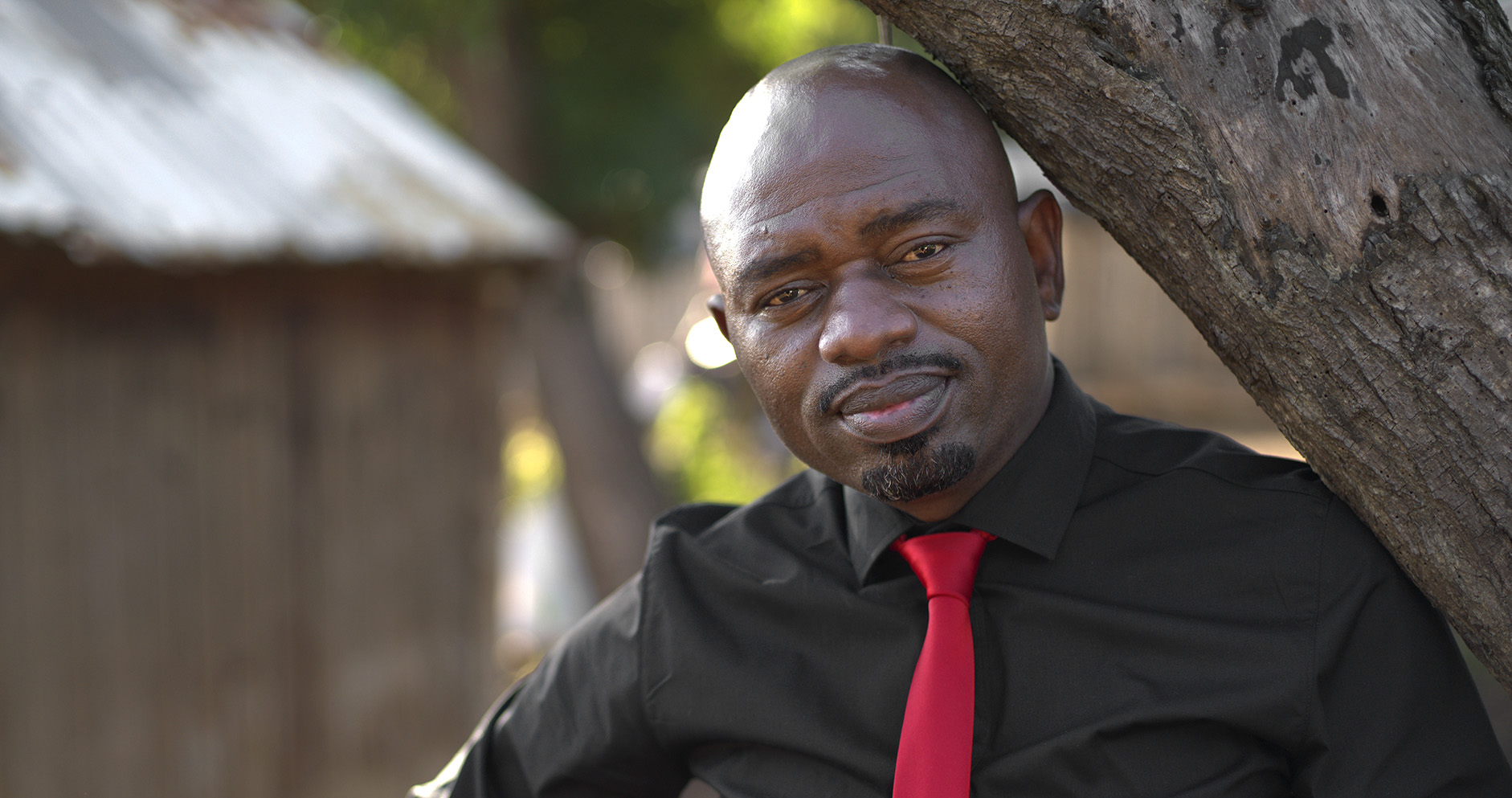
Leader of shack dwellers organisation Abahlali baseMjondolo, S’bu Zikode was awarded the Swedish Per Anger Prize for 2021 in recognition of his commitment to human rights. (Photo: Michael Jaspan)
Mohapi says his community subsequently won their court case and were allowed to remain on the land, where they still are today.
It was then that he joined Abahlali, working his way up to a senior leadership position.
Mohapi says it has been an arduous journey, particularly when 25 Abahlali members were assassinated in recent years.
“Every time that someone has been killed, they call me and I always go to the scene,” he says.
Read more in Daily Maverick: Conviction for murder of Abahlali baseMjondolo member welcomed, but movement still facing repression
On the culture of violence in KwaZulu-Natal, Mohapi says it stems from political clashes during the apartheid era that left festering tensions and distrust between political parties and ethnicities.
“When you live in a shack, people think your state of mind has collapsed and that your dignity must not exist… politicians only look at poor people as a bank of votes during elections.”

At the Abahlali offices in Diakonia Centre. From left to right: Shawn Hattingh (Ilrig, Johannesburg), Mthetwa Xhali (Ilrig Cape Town), three men at back from the Syrian Kurdish group. Front row, Alice Caleni, Zoleka Jali, Thapelo mohapi, Mfanufikile SZindane, Thabile Makhoba. (Photo: Lauren Gower)
He says that the role of Abahlali is to conscientise and help people understand their social circumstances and their rights.
Mohapi says it is a misconception that poor people want to have things done for them and that they are without agency.
He says people want the ability to provide for themselves and that when government speaks about development, it should be with and not to the people.
“Abahlali do not struggle for its members, we struggle with them. We do not take away the agency from the people. We have always believed that the oppressed can liberate themselves. It will not take a messiah from somewhere to liberate us. We are stewards of our own struggle.”
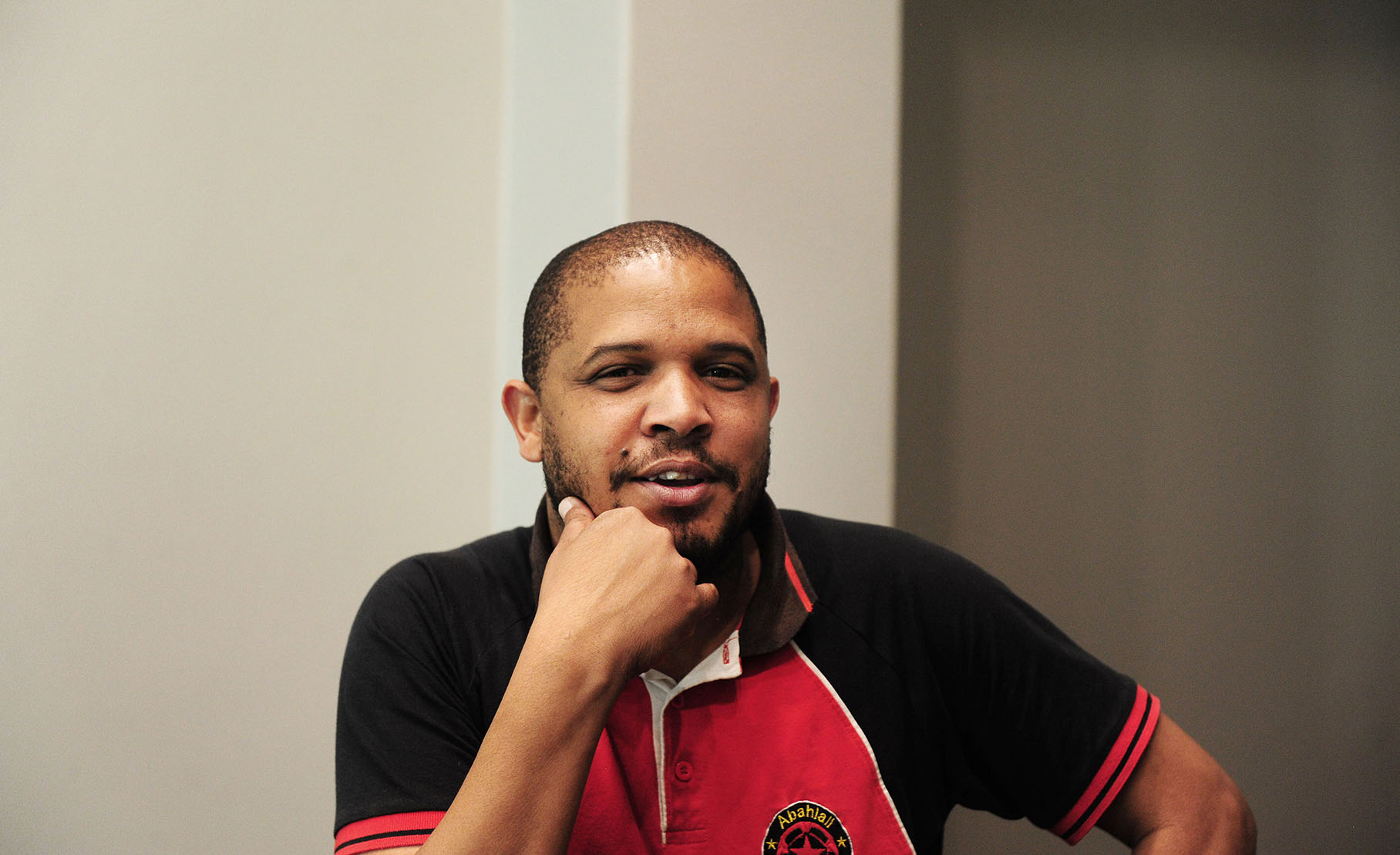
Abahlali baseMjondolo General Secretary Thapelo Mohapi. (Photo: Leon Sadiki)
Mohapi says it is only when people are organised at a grassroots level that the political framework of the country will change. He also believes South Africa needs selfless leaders to change the status quo of corruption.
Mohapi says he, S’bu Zikode and deputy president Mqapheli Bonono are in hiding because of death threats they have been receiving.
“This is not the life one wants to live… I don’t sleep at night. I see the enemy and expect death to come… My aunt and uncle called me asking if I wanted to die and leave my kids behind… but when I attended our last general assembly, seeing and listening to people’s struggles, I thought ‘if that gogo can still put up a fight, I would be failing them’ if I pulled out.
“There’s no going back now.”
Mohapi says he wants his children to remember, “Our father fought a good fight”. DM
In an earlier version of this article we did not credit Lauren Gower for one of the images. We apologise for the oversight and have now credited her.


















 Become an Insider
Become an Insider
Excuse me, what is all this?
Vote for the DA my brothers. It is the best way to get the rights we all deserve.
Please stop the opportunism. You know very well that voting DA will not change their situation. In fact, the reason they are in this situation is because of apartheid policies.
It think it is good that they stand on their rights and understand them but, can they also spend a bit of time understanding town planning. Why you don’t settle in areas that are flood prone etc. I would implore them to get involved with the town planning in their area. Thinking about this statement ……. alas I am wrong because the people in the cities town planning departments are cadres that also don’t know or understand how town planning works that it requires vision and planning.